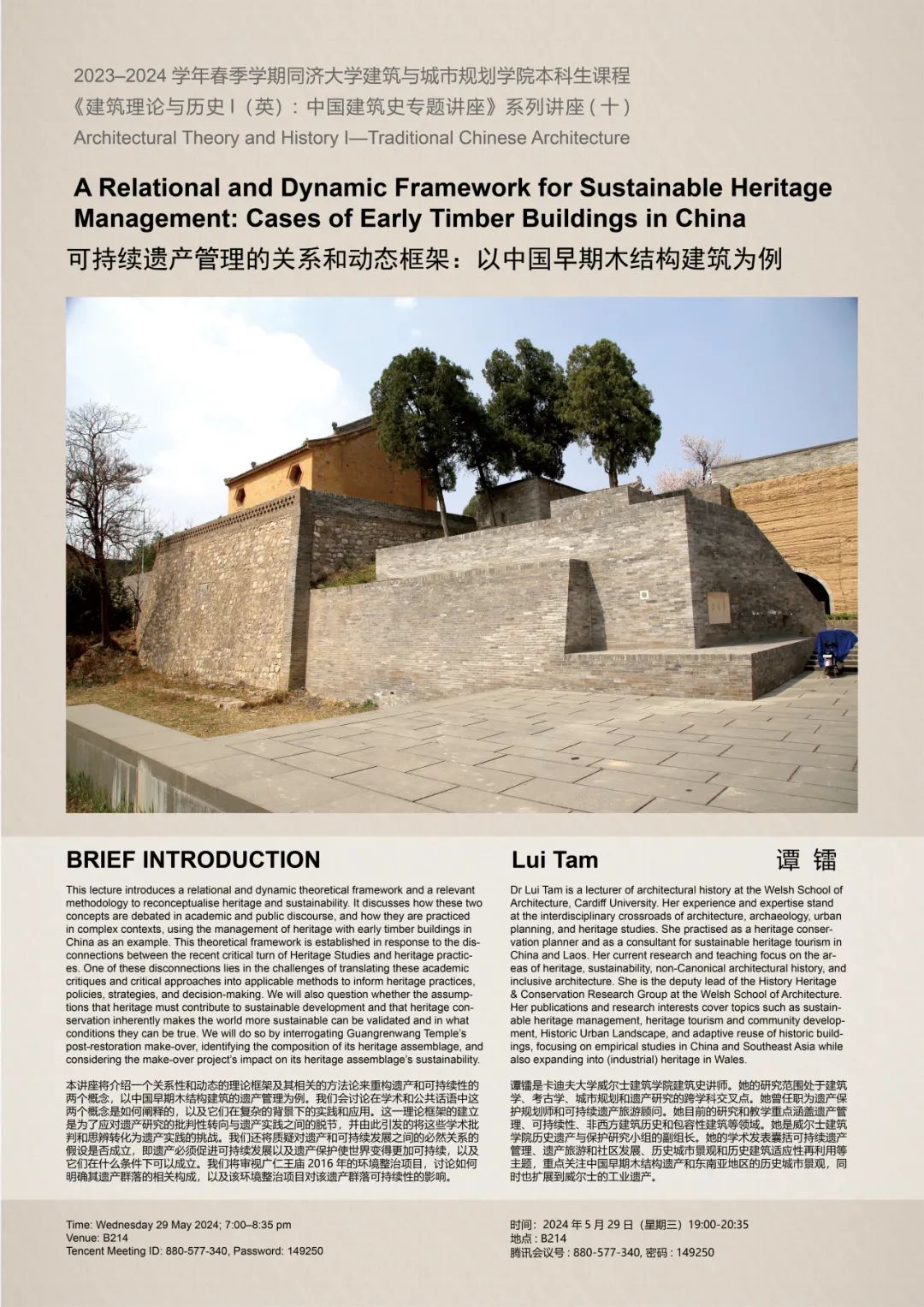

Lecture Series:Architectural Theory and History I—Traditional Chinese Architecture
A Relational and Dynamic Framework for Sustainable Heritage Management:
Cases of Early Timber Buildings in China
Time: Wednesday 29 May 2024; 7:00-8:35 pm
Venue:B214
Tencent Meeting ID: 880-577-340
Password: 149250
Speaker: Lui Tam
Dr Lui Tam is a lecturer of architectural history at the Welsh School of Architecture, Cardiff University. Her experience and expertise stand at the interdisciplinary crossroads of architecture, archaeology, urban planning, and heritage studies. She practised as a heritage conservation planner and as a consultant for sustainable heritage tourism in China and Laos. Her current research and teaching focus on the areas of heritage, sustainability, non-Canonical architectural history, and inclusive architecture. She is the deputy lead of the History Heritage & Conservation Research Group at the Welsh School of Architecture. Her publications and research interests cover topics such as sustainable heritage management, heritage tourism and community development, Historic Urban Landscape, and adaptive reuse of historic buildings, focusing on empirical studies in China and Southeast Asia while also expanding into (industrial) heritage in Wales.
Brief Introduction:
This lecture introduces a relational and dynamic theoretical framework and a relevant methodology to reconceptualise heritage and sustainability. It discusses how these two concepts are debated in academic and public discourse, and how they are practiced in complex contexts, using the management of heritage with early timber buildings in China as an example. This theoretical framework is established in response to the disconnections between the recent critical turn of Heritage Studies and heritage practices. One of these disconnections lies in the challenges of translating these academic critiques and critical approaches into applicable methods to inform heritage practices, policies, strategies, and decision-making. We will also question whether the assumptions that heritage must contribute to sustainable development and that heritage conservation inherently makes the world more sustainable can be validated and in what conditions they can be true. We will do so by interrogating Guangrenwang Temple’s post-restoration make-over, identifying the composition of its heritage assemblage, and considering the make-over project’s impact on its heritage assemblage’s sustainability.
 ABOUT US
ABOUT US




